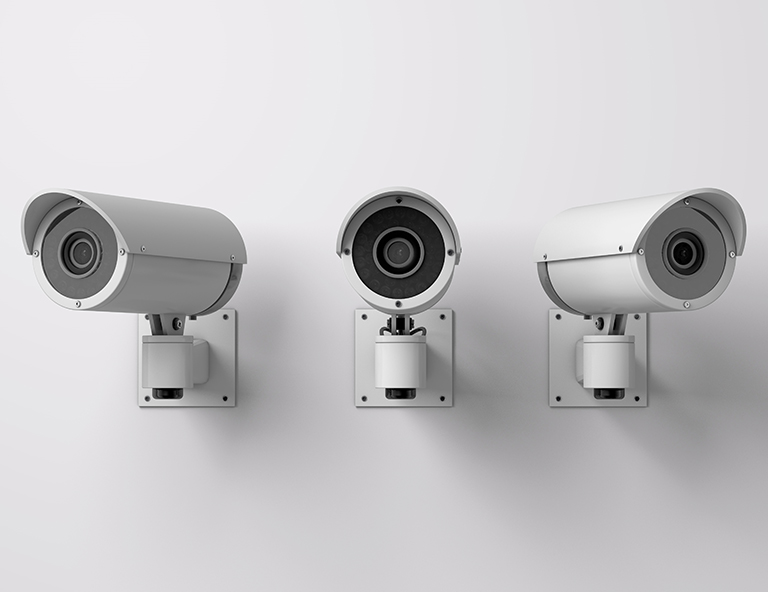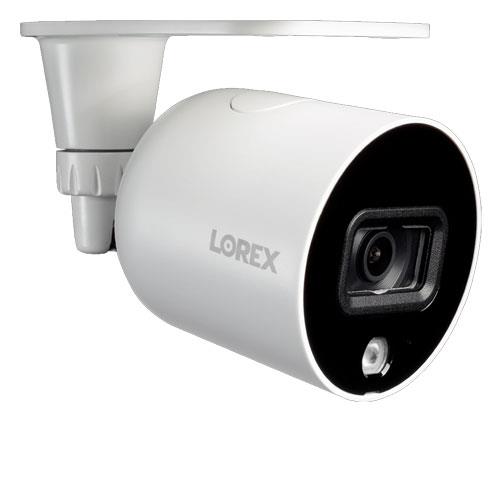Fire alarm systems for commercial buildings: 3 Types, 5 Components and 4 Key Considerations
Fire alarm systems for commercial buildings are a critical component of fire safety protocols. These Fire alarm systems for commercial buildings are designed to detect the presence of smoke or fire and alert building occupants and emergency responders of the danger. This allows for a timely evacuation of the building, which can save lives and minimize property damage. In this article, we will discuss the different types of Fire Alarm systems for commercial buildings, the components that make up these systems, and the key considerations when designing and installing a fire alarm system.
There are several types of fire alarm systems available for commercial buildings. These include:
- Conventional fire alarm systems: These systems use a central control panel to monitor and control individual detectors and alarms throughout the building. Conventional systems are suitable for smaller buildings or buildings with simple layouts.
- Addressable fire alarm systems: These systems use a central control panel to monitor and control individual detectors and alarms throughout the building, but each device has a unique address that can be used to identify its location in the event of an alarm. Addressable systems are more complex and are often used in larger buildings or buildings with complex layouts.
- Wireless fire alarm systems: These systems use wireless technology to transmit signals from detectors and alarms to the central control panel. Wireless systems are becoming increasingly popular due to their flexibility and ease of installation.
The components that make up a Fire alarm systems for commercial buildings include:
- Fire detectors: These devices detect the presence of smoke or fire and trigger the alarm. There are several types of fire detectors available, including smoke detectors, heat detectors, and combination smoke/heat detectors.
- Alarm devices: These devices provide an audible or visual warning of a fire. They include horn/strobes, bells, and speakers.
- Control panel: This is the central control point of the fire alarm system. It receives signals from the detectors and alarms and triggers the appropriate response.
- Emergency lighting: These lights provide illumination during a power outage or fire emergency.
- Fire suppression systems: These systems extinguish or control a fire by releasing an appropriate extinguishing agent.
When designing and installing a Fire alarm systems for commercial buildings, there are several key considerations. These include:
- Building layout and occupancy: The layout of the building and the number of occupants will determine the type and number of detectors and alarms required.
- Building codes and regulations: Fire alarm systems must comply with local building codes and regulations. It is important to consult with a fire protection engineer to ensure compliance.
- Testing and maintenance: Fire alarm systems must be tested and maintained on a regular basis to ensure they are functioning properly.
- Evacuation plans: A fire alarm system is only effective if building occupants know how to respond in the event of an alarm. A clear evacuation plan should be in place and practiced regularly.
In conclusion, Fire alarm systems for commercial buildings are a critical component of fire safety protocols. They detect the presence of smoke or fire and alert building occupants and emergency responders of the danger, allowing for a timely evacuation of the building. There are several types of Fire alarm systems for commercial buildings, including conventional, addressable, and wireless systems. These systems are made up of several components, including fire detectors, alarm devices, control panels, emergency lighting, and fire suppression systems. When designing and installing a Fire alarm systems for commercial buildings, it is important to consider the building layout, occupancy, building codes and regulations, testing and maintenance, and evacuation plans. With the right fire alarm system in place, commercial buildings can be better protected against the dangers of fire.
Fire alarm systems for commercial buildings

Fire alarm systems for commercial buildings typically include intrusion detection, fire detection, and environmental monitoring. These systems can include a combination of sensors, alarms, and monitoring equipment to alert building occupants and security personnel of potential dangers. Fire alarm systems for commercial buildings can also be connected to a central monitoring station, which can dispatch emergency services in the event of an alarm activation. Additionally, many commercial alarm systems can be integrated with access control systems to provide added security for the building and its occupants.
Fire alarm systems for commercial buildings are an essential part of ensuring the safety and security of commercial spaces. They can provide a wide range of benefits, including intrusion detection, fire detection, environmental monitoring, and remote monitoring. In this article, we will discuss the different types of alarm systems available for commercial spaces, the benefits of having an alarm system in place, and how to choose the right system for your business.
One of the most common types of Fire alarm systems for commercial buildings is intrusion detection. These systems use a combination of sensors, alarms, and monitoring equipment to detect any unauthorized entry into the building. They can include door and window sensors, motion detectors, and glass break detectors. If an intrusion is detected, the alarm will sound and the authorities will be notified, helping to deter burglars and protect the building’s assets.
Another important aspect of commercial alarm systems is fire detection. These systems include smoke detectors, heat detectors, and fire alarms. They are designed to detect the presence of smoke or heat, and can automatically notify the fire department in the event of an emergency. This can help minimize damage and potentially save lives.
Environmental monitoring is another feature that some commercial alarm systems offer. These systems can monitor for potential hazards such as gas leaks or flooding, and can notify the appropriate authorities in the event of an emergency. This can help prevent damage to the building and its contents.
Remote monitoring is a feature that many modern alarm systems offer. Business owners can access the system remotely via a web interface or a mobile app, allowing them to monitor their property from anywhere. This can be especially useful for businesses that operate outside of regular business hours or for those that have multiple locations.
In addition to the above features, many Fire alarm systems for commercial buildings can be integrated with access control systems. This allows for better monitoring and control of who enters and exits the building, providing an added layer of security for the building and its occupants.
Having an alarm system in place can provide a number of benefits for a business. Firstly, it can deter burglars and intruders from entering the building, helping to protect the business’s assets and the safety of its employees. Secondly, it can provide fire protection by alerting building occupants to a potential fire and automatically notify the fire department. This can help minimize damage and potentially save lives. Thirdly, it can monitor for potential environmental hazards such as gas leaks or flooding, helping to prevent damage to the building and its contents. Fourthly, it can provide remote monitoring, allowing business owners to monitor their property from anywhere. Fifthly, it can help save money by reducing the risk of loss due to theft or damage and potentially lower insurance rates. Lastly, it can provide peace of mind for business owners, employees, and customers.
When choosing an alarm system for a commercial space, it’s important to consider the size and layout of the building, as well as the specific security needs of the business. A small office space may only require basic intrusion detection, while a larger warehouse may require additional features such as environmental monitoring and access control. It’s also important to consider the cost of the system, as well as the cost of installation and ongoing maintenance.
Overall, alarm systems are an essential part of ensuring the safety and security of commercial spaces. They can provide a wide range of benefits, including intrusion detection, fire detection, environmental monitoring, and remote monitoring. When choosing an alarm system for a commercial space, it’s important to consider the size and layout of the building, as well as the specific security needs of the business. With the right system in place, businesses can be confident that their property, people, and assets are protected at all times.



